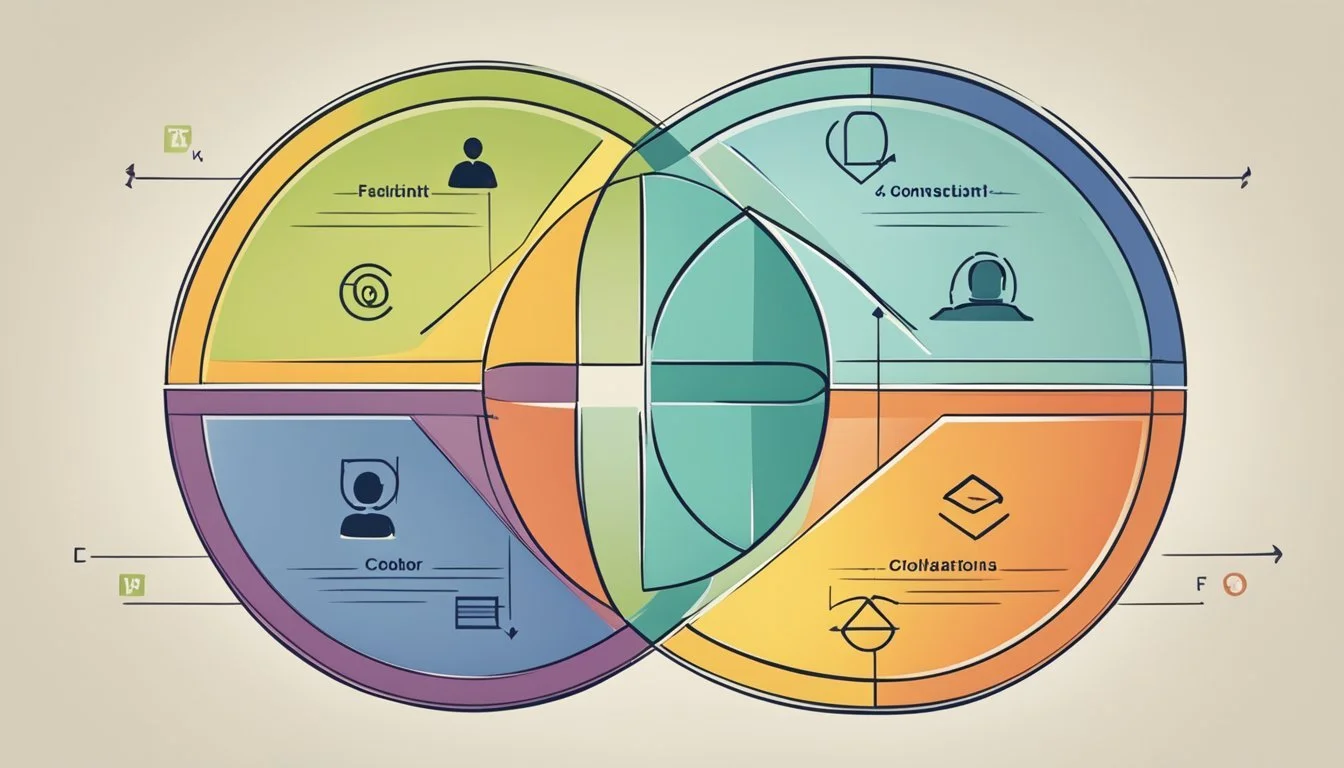Unlocking Insights: The 4 Personality Types DISC Explained
Personality assessments provide valuable insights into human behavior and interpersonal dynamics. One widely recognized model for understanding individual differences is the DISC framework, which categorizes personalities into four distinct types.
The DISC model identifies four primary behavioral styles: Dominance (D), Influence (I), Steadiness (S), and Conscientiousness (C). Each style represents a unique set of traits, motivations, and communication preferences. By exploring these personality types, individuals can gain a deeper understanding of themselves and others, improving relationships and workplace interactions.
1) Dominant Leadership Skills
Leaders with a Dominant (D) personality type exhibit strong decision-making abilities and a results-oriented approach. They excel at setting clear goals and driving progress within organizations.
D-type leaders are known for their assertiveness and willingness to take charge in challenging situations. They often thrive when faced with obstacles, using their problem-solving skills to overcome barriers quickly.
These leaders have a natural talent for introducing new ideas and challenging the status quo. Their confidence and ability to take calculated risks can inspire innovation within teams.
Dominant leaders typically communicate in a direct and concise manner. They value efficiency and prefer to focus on the bottom line rather than getting caught up in details.
While their decisive nature can be an asset, D-type leaders may need to balance their result-driven approach with empathy. Developing active listening skills and considering team members' input can enhance their leadership effectiveness.
Dominant leaders often excel in high-pressure environments where quick decisions are necessary. Their ability to remain composed under stress makes them valuable assets during crises or time-sensitive projects.
2) Influential Communication Techniques
Influential communicators excel at inspiring and persuading others. They often use animated facial expressions and gestures to convey their enthusiasm. These individuals tend to focus on building relationships and creating a positive atmosphere.
When communicating with influential types, it's important to maintain an upbeat and friendly tone. They appreciate personal anecdotes and respond well to praise and recognition. Influential communicators prefer conversations that are lively and engaging.
To effectively interact with this personality type, allow time for socializing before diving into business matters. Use visual aids and storytelling to capture their attention. Influential types are motivated by opportunities to collaborate and share ideas with others.
It's beneficial to provide influential communicators with options rather than rigid instructions. They thrive when given the chance to express their creativity and showcase their interpersonal skills. Encouraging their input and valuing their opinions helps build rapport.
When presenting information to influential types, focus on the big picture rather than intricate details. Highlight how ideas or projects can benefit people and improve relationships. These individuals are often quick decision-makers who trust their instincts.
3) Steady Team Collaboration Methods
Steady personalities thrive in collaborative environments that prioritize harmony and stability. These individuals excel when working in teams that maintain a consistent pace and structured approach to tasks.
To facilitate effective collaboration with Steady team members, establish clear routines and predictable workflows. This helps create a sense of security and allows them to focus on their strengths.
Encourage open communication channels where Steady personalities feel comfortable sharing their ideas. Provide ample time for them to process information and contribute thoughtfully to discussions.
Assign roles that align with their supportive nature, such as team mediator or project coordinator. These positions leverage their ability to maintain group cohesion and ensure smooth operations.
Implement regular check-ins and progress updates to keep Steady team members informed and engaged. This approach helps them feel connected to the team's objectives and reinforces their sense of belonging.
Recognize and appreciate their consistent efforts and dedication to the team. Steady personalities value acknowledgment for their reliability and contributions to a positive work environment.
4) Conscientious Analytical Strategies
Conscientious individuals excel at employing analytical strategies in their work and decision-making processes. They approach tasks with a methodical and detail-oriented mindset, carefully examining all aspects of a situation before taking action.
These analytical thinkers prioritize accuracy and precision in their work. They often create detailed plans and checklists to ensure nothing is overlooked. Their systematic approach allows them to identify potential issues and develop comprehensive solutions.
Conscientious types value data-driven decision-making. They gather and analyze relevant information, using logical reasoning to draw conclusions. This analytical approach helps them minimize risks and make well-informed choices.
In problem-solving, conscientious individuals break complex issues into smaller, manageable components. They methodically work through each part, considering various perspectives and potential outcomes. This strategy enables them to develop thorough and effective solutions.
These analytical thinkers also excel at quality control. They set high standards for their work and consistently review and refine their outputs. Their attention to detail and commitment to excellence often result in high-quality outcomes.
Overview of DISC Personality Types
The DISC model categorizes individuals into four primary behavioral styles: Dominance, Influence, Steadiness, and Conscientiousness. Each style has distinct characteristics that shape how people interact, communicate, and approach tasks.
What is the DISC Model?
The DISC model, developed by psychologist William Moulton Marston, provides a framework for understanding human behavior. It classifies individuals based on their tendencies in various situations.
The four main DISC types are:
D (Dominance): Direct, results-oriented, and decisive
I (Influence): Outgoing, enthusiastic, and optimistic
S (Steadiness): Patient, loyal, and supportive
C (Conscientiousness): Analytical, precise, and detail-oriented
While people may exhibit traits from all four types, most individuals have a primary style that dominates their behavior. The DISC model helps in recognizing these patterns and improving communication and teamwork.
Research indicates that the S style is the most common, comprising about 32% of the global population. The D style is less prevalent, representing approximately 9% of people worldwide.
Characteristics of the D Type
D-type personalities exhibit strong leadership traits and a drive for results. They tend to be direct, decisive, and action-oriented in their approach to work and relationships.
Dominance Explained
D-type individuals are natural-born leaders who thrive on challenges and competition. They possess a strong desire to win and achieve their goals at all costs. These personalities are often described as forceful, confident, and results-driven.
D-types excel at making quick decisions and taking charge in difficult situations. They have a high tolerance for risk and are not afraid to tackle complex problems head-on.
In communication, D-types prefer directness and brevity. They value efficiency and may become impatient with long explanations or excessive details. Their focus is on the bottom line and immediate results.
D-types are typically self-reliant and independent. They have a strong need for control and may struggle with delegation or collaborative work environments. However, their ability to take initiative and drive projects forward makes them valuable team members in many organizations.
Understanding the I Type
The I personality type in DISC stands for Influence. This style is characterized by enthusiasm, optimism, and a focus on social connections.
Influence in DISC
I-type individuals are outgoing and people-oriented. They excel at building relationships and motivating others. Their natural charisma makes them persuasive communicators and effective networkers.
These individuals thrive in social settings and enjoy being the center of attention. They often have a large circle of friends and acquaintances.
I-types are typically optimistic and see the positive side of situations. This outlook can be contagious, inspiring those around them.
In work environments, I-types excel in roles that involve interacting with others. Sales, marketing, and public relations are fields where their skills shine.
They prefer a fast-paced, dynamic work environment. Routine tasks may bore them, as they crave variety and excitement.
I-types value recognition and praise. They respond well to positive reinforcement and may struggle with criticism.



